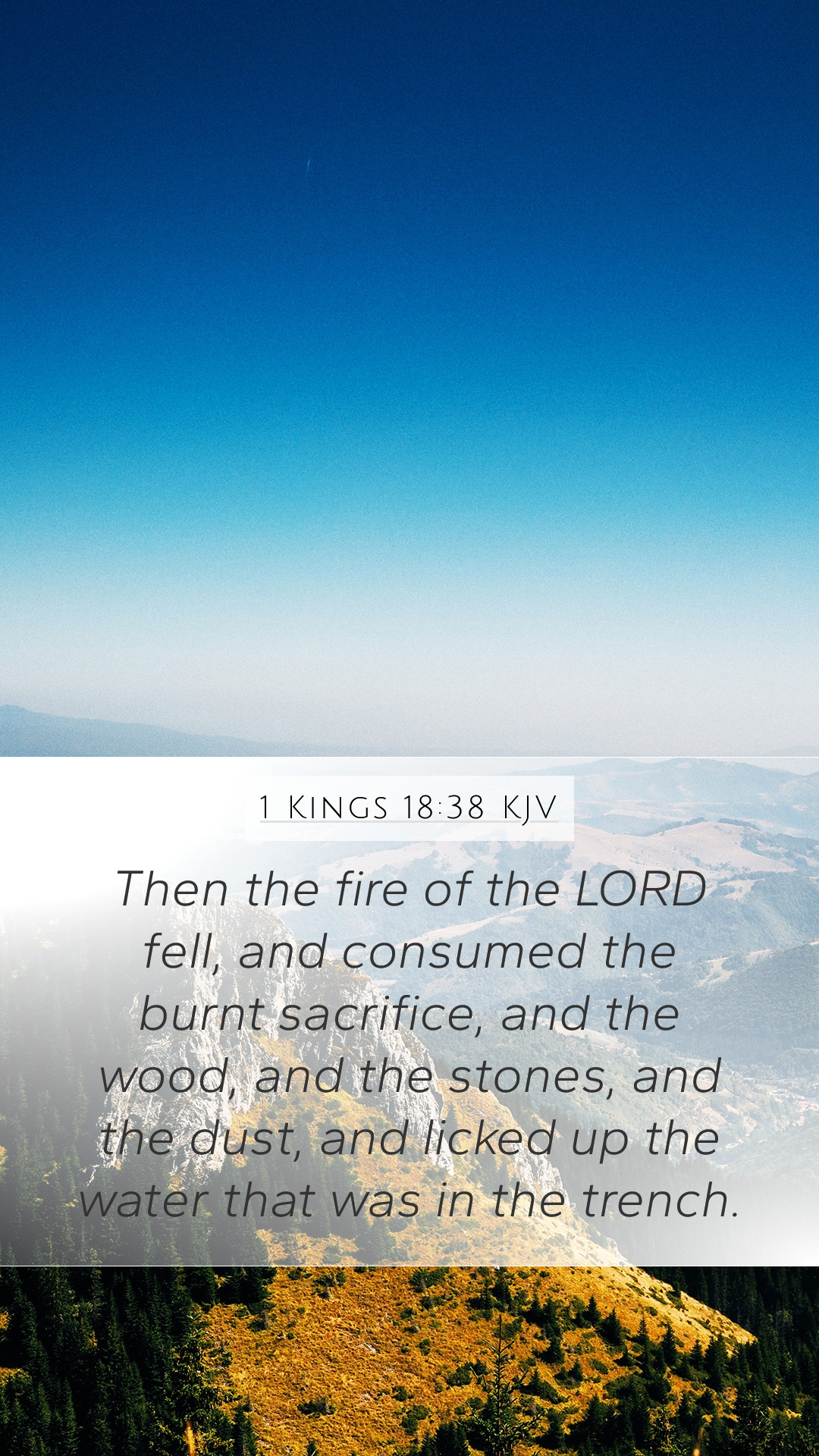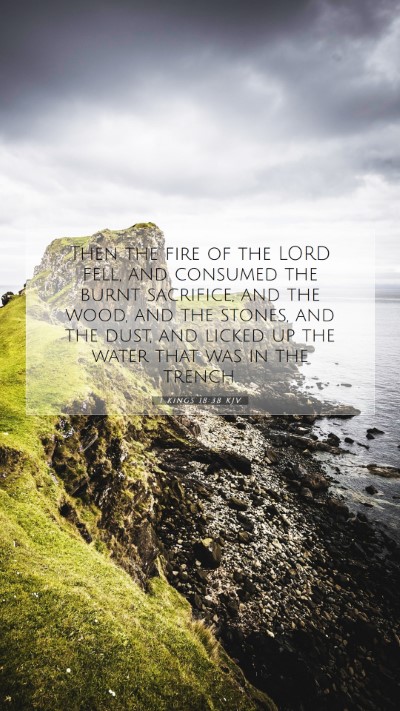Understanding 1 Kings 18:38
Verse: 1 Kings 18:38 - "Then the fire of the LORD fell, and consumed the burnt sacrifice, and the wood, and the stones, and the dust, and licked up the water that was in the trench."
Context and Overview
This verse occurs during a pivotal moment in the confrontation between the prophet Elijah and the prophets of Baal on Mount Carmel. This contest was designed to prove the sovereignty of the LORD over false gods. The fire from heaven serves as a divine endorsement of Elijah's ministry and a powerful demonstration of God's power.
Verse Meaning and Interpretations
Interpreting 1 Kings 18:38 provides several layers of understanding:
- Divine Intervention: The fire descending from heaven illustrates God’s direct intervention in human affairs, showcasing His ability to overpower any false deity.
- Consuming Nature: The verse details the thoroughness of God’s fire, consuming not only the sacrifice but also the stones and water, emphasizing that God is not limited by natural constraints.
- Proclamation of True Worship: The sending of fire serves to rally the people back to true worship and away from idolatry, reflecting God’s desire for His people to be devoted to Him.
Commentary Insights
Matthew Henry's Commentary
Matthew Henry highlights that the fire falling from heaven was a clear signal that the LORD is God. The miraculous event served to distinguish Elijah's mission as true and divinely ordained. Henry appreciates the dramatic display of God’s power and authority, noting that the people’s response was immediate—falling on their faces and declaring, "The LORD, He is God!" (1 Kings 18:39).
Albert Barnes' Notes
Albert Barnes emphasizes the significance of the fire consuming everything, showing the totality of God's acceptance of the sacrifice. Barnes points out that God's fire was a definitive answer to Elijah's prayer, revealing the potency of sincere supplication to God. The event was a public vindication of the true God, stirring hearts and redirecting the nation back to covenant fidelity.
Adam Clarke's Commentary
Adam Clarke remarks on the physicality of the event, stressing the impact of such a display on the onlookers. He notes that the term "licked up" conveys a sense of complete consumption, illustrating God's omnipotence. Clarke's analysis also reflects on the symbolic nature of fire in the Scriptures—often associated with purification and judgment, which further solidifies the narrative of accountability before God.
Application to Modern Believers
For contemporary believers, the fire from heaven serves as a reminder of God's presence and power in our lives. It challenges individuals to examine their devotion and sincerity in worship. It motivates faithfulness and encourages prayerful dependence on God, who answers according to His will.
Cross References
Related verses that further illuminate the significance of 1 Kings 18:38 include:
- Leviticus 9:24: God’s fire consuming the offerings in the Tabernacle.
- Hebrews 12:29: "For our God is a consuming fire."
- Romans 12:1: The call to present ourselves as living sacrifices to God.
Conclusion
In summary, 1 Kings 18:38 portrays a powerful moment of divine revelation and restoration of faith. Through various commentaries, we gather insights into how this verse serves as both historical testament and ongoing inspiration for worship and obedience.
Whether used in Bible study groups, as part of an online Bible study, or for personal reflection, this verse invites believers to engage deeply with the nature of God and their relationship with Him.


